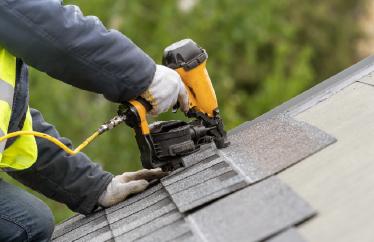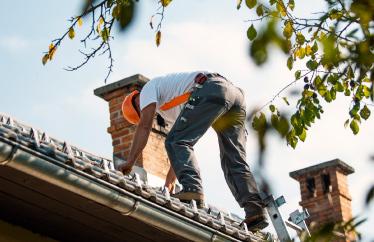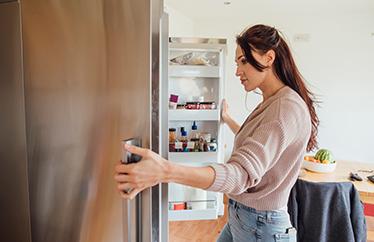With interest rates at record lows—and the end of COVID-19 in sight—a huge number of homes are likely to hit the market soon. If you’re thinking about buying a home soon (or have recently purchased one), you might be feeling excited about making a big change. But don’t forget about the flipside of that excitement, homebuyer’s remorse: the second-guessing that happens once the initial thrill of buying a new home wears off.
First, the good news: Homebuyer’s remorse is normal. In fact, it happens to a full 52% of all buyers, and it seems to be generational. A whopping 63% of homebuyers between the ages of 23 and 38 have regrets about purchasing their current home. Even people who carefully weigh the pros and cons and do their research often experience some regret afterward. Homeowners work hard during the purchase process, and they expect to experience nothing but positive feelings and a sense of accomplishment once the work is done. But instead, there’s often a sense of unease, guilt and self-doubt.
So is there anything you can do to avoid those feelings? Fortunately, yes. The best way to handle the dreaded home purchase “hangover” is to prepare for it ahead of time, by anticipating the common triggers and deciding how to handle them. To help you prepare, we’ve collected some regularly cited reasons why some people experience buyer's remorse below.
Common causes of homebuyer's remorse
Spending too much money
This is by far and away the most common cause of buyer’s remorse after closing on a home. From the never-ending fees to the mountains of complicated documents, you might not even be sure exactly how much you spent. Once you add up the closing costs, multiple home inspections, mortgage interest, realtor’s fees, and future repair issues, you may end up spending more than you anticipated.
Not loving the neighborhood
Sometimes we gloss over the details when pulling up to what could be the house of our dreams. With rose-colored spectacles, we overlook the apparent hoarder a few houses down, trash cans out on a no pick-up day, or that this neighborhood would more than double your commute. Your neighborhood plays just a big part in enjoying your home as the structure itself, so make sure you love it as much as the house itself.
Second-guessing the house
The home you buy may be the one you'll live in for years to come, which can put new buyers in a sort of analysis paralysis. After considering all the locations and various school districts available, buyers may make concessions, and then second-guess whether they were worth it. Worrying that the home is too big—or maybe not big enough—is another common issue.
Stop homebuyer's remorse in its tracks
Remember, it's normal
Whenever we do something important and unfamiliar, it’s perfectly natural to feel apprehensive. Going into the home-purchasing process with as much information as possible is the best way to thwart any difficult feelings after moving. But even then, it’s important to give yourself the space to feel any emotions that come up in the wake of this major life decision. Those feelings won’t last forever.
Stay within your budget
The down payment on your new home is only one piece of the equation. Set yourself up for success by thinking through what the ongoing financial responsibilities of owning your home will be. It's easy to only think of the mortgage, but it's essential to factor in everything else that will impact your budgets like property taxes, property insurance, home maintenance and utilities.
According to the US Bureau of Labor Statistics, the average household budget is $63,036 per year. This includes all living expenses, from necessities like food, housing and transportation to other expenditures like clothing and education.
Make sure you’re not getting in over your head by taking all the little fees into account in your budget and try to think ahead about what your new home will cost to maintain. Run the numbers first, and you won’t be in for a nasty surprise down the line.
Don't rush your decision
Maybe you’re hearing that it’s a "seller's market" or that home inventory is low. Maybe even your real estate agent is pressuring you to buy a so-so house because they don't have anything that fits your checklist.
Take your time. Make a closing checklist. Decide what you have to have, your like-to-haves and your would-be-nices. Of course, be realistic and reasonable, but try not to settle for something you won't be happy with in the long run, all in the name of quick homeownership.
Look to the future
Fancy upgrades sell. This is something that home stagers and house flippers specialize in, and now, savvy home sellers know it, too. If you buy a home because it looks just like a house you saw on Instagram last week, try to envision what you may see a few years in the future. Trends will change, and the same insta-house you were gushing over will be a distant memory.
This is true of those fancy upgrades that may impress you at first sight, too, like a double staircase, spa bathtubs and theater seating in the basement. Maybe you will still enjoy these things in a few years, but the real question is, do you want to pay out of your well-devised budget for something you didn't really need that could eventually lose its appeal and may even need to be removed?
Experts advise looking at the "bones" of the houses you are shopping—the architectural style and how well it's constructed. Though home decor trends will come and go, a well-built home will always hold its value.
Grab a tool belt
The sticker shock of home maintenance projects can sometimes cause people to rethink a home purchase, especially after years of renting. While owners have to be involved in the home's maintenance, it can actually be as enjoyable as any other hobby. Just like everything else to do with your home, a little planning and research can go a long way. DIY home maintenance can turn out to be simpler than you think—maybe even fun! In our recent 2023 homeowner regrets survey, we also learned that prioritizing home maintenance was a New Year’s resolution for more than a quarter of responding homeowners.Take a peek at our blog for valuable tips and tricks on what it takes to maintain your home.
Your remorse will soon be a distant memory
This feeling generally only lasts for the first few months. Once you've completely moved in, started your home maintenance routines, bought furniture and splurged on a few small home projects, the big expenditures slow down and you fall in love with your home. Talk to a trusted person who also has bought a home and knows what a big decision it is. Having someone who can corroborate your feelings will help you realize how normal—and temporary—homebuyer’s remorse is.
Make a love list to your home
Due to the pandemic, there are more reasons than ever to love (and hate) your home. Having to spend more time inside than ever has us all a bit stir-crazy. But think about those four walls and what they have provided for you during this past year. Maybe that extra bedroom you weren't entirely sold on at first was perfect for an office or home gym you never knew you always needed. Maybe that upgraded kitchen came in handy when you had to make more meals at home. Whatever the reasons are, write them all down and then walk room by room to say thank you. It might sound silly, but this list can give your subconscious the proof it needs that you made the right decision choosing the home you did.
What if you really do want out?
If you genuinely feel like you made a mistake and want out of the home, you still have options. You could consider becoming a landlord and using your newly bought property as a rental. You also may be able to turn around and sell the home if you are in a particularly hot real estate market. There is a chance you will make a profit, but you should look to break even at best. Include all of your selling and moving fees to determine your "break-even" point on the sale.
As common as homebuyer's remorse is, parts of it are controllable and, therefore, preventable. Do your homework before house hunting to make sure the homes in your search are the best for your lifestyle and your own personal financial situation.
It’s important to remember that these moments of doubt are inevitable and that it’s okay to have some emotional highs and lows during the process. Just take a step back and look at the big picture. Then you’ll be able to allow yourself to appreciate the choice you made and love the home you are in.




